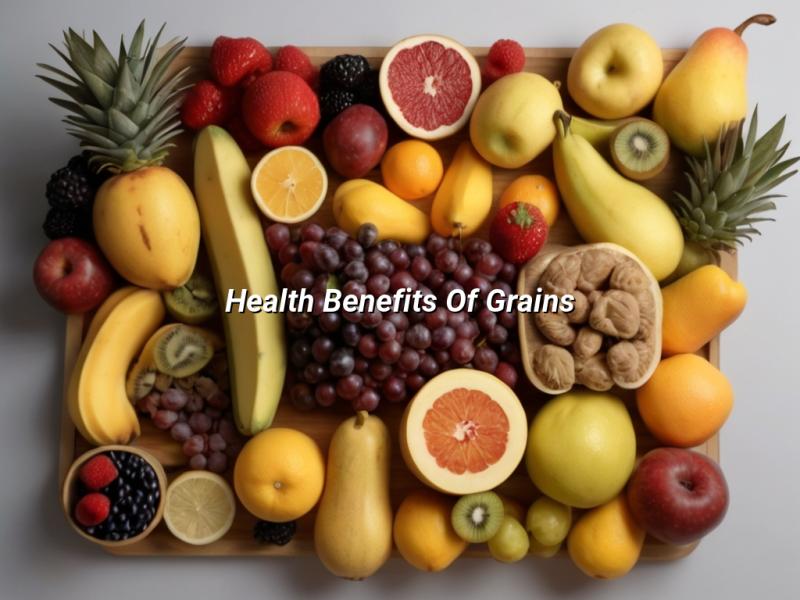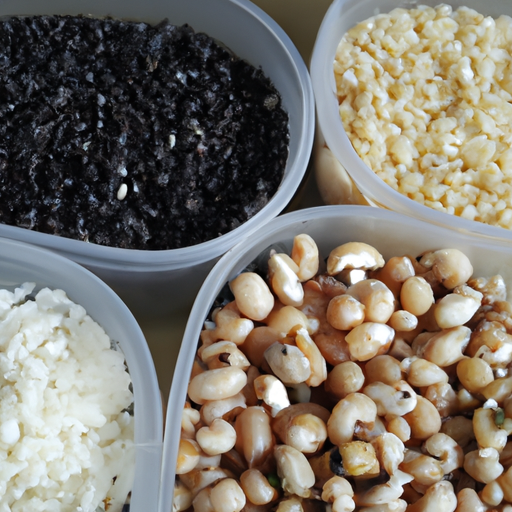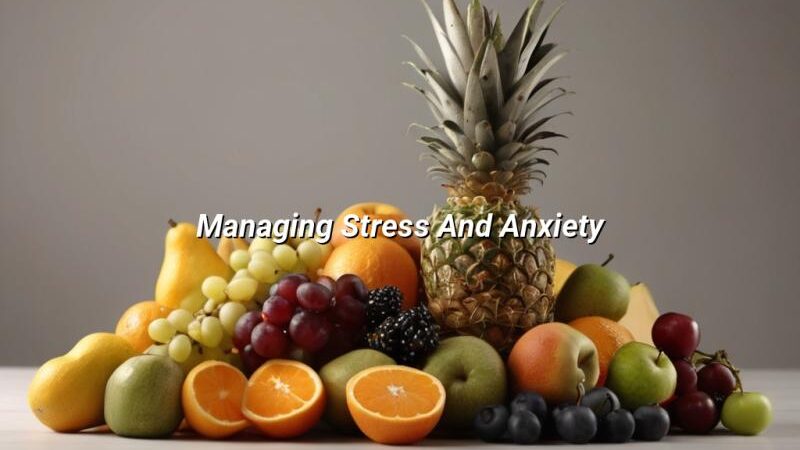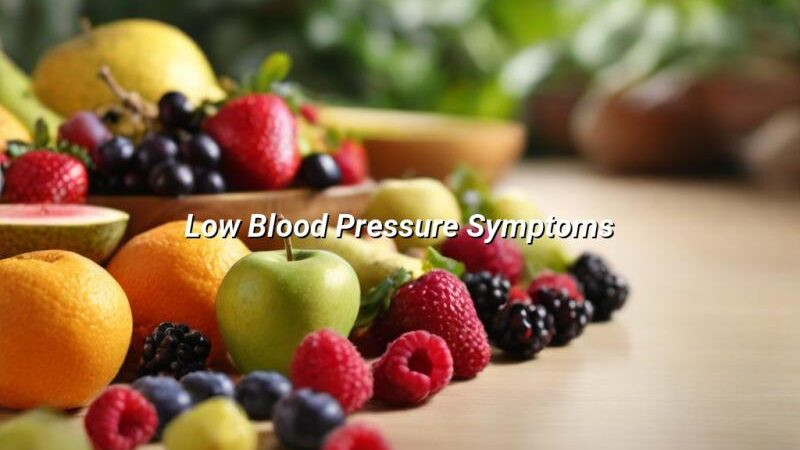Health Benefits Of Grains

The Nutritional Power of Whole Grains: How Eating Whole Grains Can Improve Your Health
Welcome to the wonderful world of whole grains! Eating whole grains can be a great way to improve your health and get the nutrition you need. In this blog post, we’ll explore the nutritional power of whole grains and how they can benefit your health.
Whole grains are a great source of essential vitamins and minerals. They are packed with fiber, which helps to keep your digestive system healthy and can help to reduce cholesterol levels. Whole grains are also a great source of complex carbohydrates, which provide your body with energy and help to keep your blood sugar levels stable.
Whole grains are also a great source of protein. Eating whole grains can help to keep your muscles strong and healthy. They are also a great source of B vitamins, which are important for healthy skin, hair, and nails.
Eating whole grains can also help to reduce your risk of certain diseases. Studies have shown that eating whole grains can reduce your risk of heart disease, stroke, and type 2 diabetes. Whole grains are also a great source of antioxidants, which can help to protect your cells from damage.
Finally, eating whole grains can help to keep you feeling full for longer. This can help to reduce your overall calorie intake and can help you to maintain a healthy weight.
As you can see, there are many benefits to eating whole grains. They are a great source of essential vitamins and minerals, and they can help to reduce your risk of certain diseases. Eating whole grains can also help to keep you feeling full for longer and can help you to maintain a healthy weight. So, why not give whole grains a try today?
The Role of Grains in a Balanced Diet: How to Incorporate Grains into Your Meal Plan
Grains are an important part of a balanced diet, providing essential nutrients like fiber, B vitamins, and minerals. Incorporating grains into your meal plan can be easy and delicious! Here are some tips to help you get started.
1. Start your day with whole grains. Whole grains are a great way to start your day off right. Try oatmeal, whole grain cereal, or a whole grain toast with nut butter.
2. Add grains to your lunch. Try adding quinoa, brown rice, or barley to your salads or soups. You can also make a wrap with whole wheat tortillas or a sandwich with whole grain bread.
3. Make dinner a grain-filled affair. Whole grains are a great way to add texture and flavor to your dinner. Try adding wild rice to your stir-fry, or making a quinoa pilaf.
4. Snack on whole grains. Whole grain crackers, popcorn, and granola bars are all great snacks that are packed with whole grains.
5. Experiment with different grains. There are so many different types of grains out there, so don’t be afraid to try something new! Try farro, spelt, or millet in your next dish.
Incorporating grains into your meal plan is a great way to get the essential nutrients your body needs. With these tips, you’ll be well on your way to a balanced diet that includes plenty of whole grains.
The Benefits of Eating Whole Grains: How Whole Grains Can Help You Reach Your Health Goals
Are you looking for ways to improve your health? Eating whole grains is a great place to start! Whole grains are packed with essential vitamins, minerals, and fiber that can help you reach your health goals. Here are some of the benefits of eating whole grains:
1. Improved Digestion: Whole grains are high in fiber, which helps to keep your digestive system running smoothly. Fiber helps to keep your bowels regular and can reduce the risk of constipation and other digestive issues.
2. Lower Cholesterol: Whole grains are also high in soluble fiber, which helps to reduce cholesterol levels. Eating whole grains can help to lower your LDL (bad) cholesterol and raise your HDL (good) cholesterol.
3. Weight Loss: Whole grains are low in calories and high in fiber, which makes them a great choice for weight loss. Eating whole grains can help you feel fuller for longer, which can help you eat less and lose weight.
4. Reduced Risk of Disease: Eating whole grains can help to reduce your risk of developing certain diseases, such as heart disease, diabetes, and certain types of cancer. Whole grains are also high in antioxidants, which can help to protect your cells from damage.
Eating whole grains is an easy way to improve your health and reach your health goals. Try adding whole grains to your diet today and start reaping the benefits!
The Different Types of Grains and Their Health Benefits: Exploring the Different Types of Grains and Their Nutritional Benefits
Grains are an important part of a healthy diet, providing essential nutrients and energy. But with so many different types of grains out there, it can be hard to know which ones are best for you. In this blog, we’ll explore the different types of grains and their nutritional benefits.
First, let’s start with whole grains. Whole grains are grains that have not been processed or refined, meaning they contain all three parts of the grain: the bran, germ, and endosperm. Whole grains are packed with fiber, vitamins, minerals, and antioxidants, making them a great choice for a healthy diet. Examples of whole grains include oats, brown rice, quinoa, barley, and bulgur.
Next, let’s look at refined grains. Refined grains are grains that have been processed to remove the bran and germ, leaving only the endosperm. This processing removes some of the fiber and nutrients, but it also makes the grains easier to digest. Examples of refined grains include white rice, white flour, and white bread.
Finally, let’s look at pseudo-grains. Pseudo-grains are not actually grains, but they are often used in place of grains in recipes. Examples of pseudo-grains include quinoa, amaranth, buckwheat, and millet. These pseudo-grains are high in protein and fiber, making them a great choice for a healthy diet.
No matter which type of grain you choose, they all offer important health benefits. Whole grains are packed with fiber, vitamins, minerals, and antioxidants, while refined grains are easier to digest. And pseudo-grains are high in protein and fiber. So, no matter which type of grain you choose, you can be sure you’re getting important nutrients and energy.
The Benefits of Eating Whole Grains for Weight Loss: How Eating Whole Grains Can Help You Lose Weight and Keep It Off
If you’re looking to lose weight and keep it off, you’ve probably heard that eating whole grains is a great way to do it. But why is that? What are the benefits of eating whole grains for weight loss?
Well, the truth is that whole grains are incredibly nutritious and can help you lose weight in a number of ways. Here’s a look at some of the benefits of eating whole grains for weight loss:
1. Whole grains are high in fiber. Fiber helps to keep you feeling full for longer, which can help you eat less and lose weight.
2. Whole grains are low in calories. Eating whole grains instead of refined grains can help you cut calories without sacrificing flavor or satisfaction.
3. Whole grains are packed with vitamins and minerals. Eating whole grains can help you get the nutrients you need to stay healthy and energized while you’re trying to lose weight.
4. Whole grains are slow-digesting. This means that they’ll keep you feeling full for longer and help you avoid unhealthy snacking.
5. Whole grains are good for your heart. Eating whole grains can help reduce your risk of heart disease, which is important for overall health and weight loss.
So, as you can see, there are many benefits to eating whole grains for weight loss. Not only can they help you lose weight, but they can also help you stay healthy and energized while you’re doing it. So, if you’re looking to lose weight, make sure to include plenty of whole grains in your diet!





